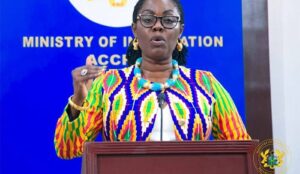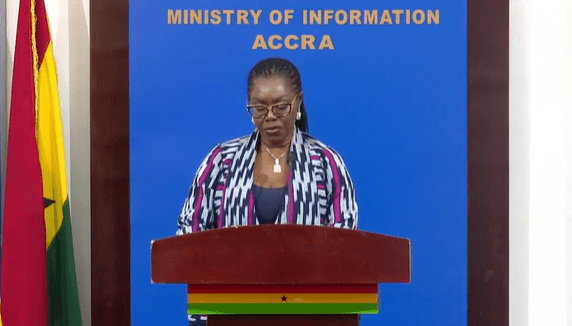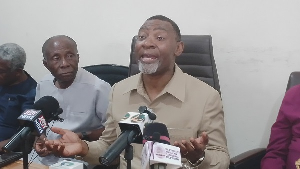Rural connectivity is a critical obstacle for many countries, including Ghana, in their efforts to achieve widespread digital transformation. Ursula Owusu-Ekuful, Minister for Communications and Digitalization, recently spoke to the media in Accra, highlighting the substantial impact of low economic activity on rural connectivity. Let’s look at the important concerns mentioned by the Minister and the measures being used to solve this urgent issue.
Assessing the Connectivity Landscape:
Minister Ursula Owusu-Ekuful emphasized a fundamental factor governing the spread of telecommunications services: the commercial viability of rural communities. Telecommunications corporations, she noted, prefer places with strong business activity due to profit considerations. As a result, places with smaller populations or limited economic potential are frequently underserved, as expanding services may not be in line with their commercial needs.
Government Initiatives and Solutions:
Despite these hurdles, Ghana’s government remains dedicated to closing the connectivity gap. Minister Owusu-Ekuful announced the Rural Telephony Project, an ambitious program aimed at increasing access in places previously disregarded by telecommunications firms. This project represents a proactive step toward ensuring that all citizens, regardless of location or socioeconomic level, have access to critical telecommunications services.
The Minister expressed confidence in the government’s engagement with telecommunications firms to implement the Rural Telephony Project. She believes that by leveraging these collaborations, great progress may be made towards tackling the connectivity difficulties afflicting rural populations.
Progress and Future Plans:
Minister Owusu-Ekuful gave an update on the government’s activities, highlighting the development of 58 connectivity points in the northern region. This real accomplishment demonstrates the government’s commitment to keeping its commitments and improving the lives of individuals in underserved communities.
Furthermore, the government’s strategic approach includes securing additional financing to speed up the deployment of broadband locations around the country. This aggressive posture demonstrates a willingness to overcome the digital divide and make internet connectivity available to all Ghanaians.

Towards inclusive digital transformation:
Ghana is committed to inclusive digital transformation, as recognized in the 2022 State of Broadband Report. With nearly 30% of the population living in unconnected rural areas, there is an urgent need to accelerate efforts to increase connections and open chances for socioeconomic development.
In addition to leveraging the Universal Access Fund, the government’s partnership with partners and allocation of significant resources demonstrates its unshakable commitment to overcoming the difficulties that impede rural access.
Conclusion:
Minister Ursula Owusu-insights Ekuful’s shed light on the intricate dynamics influencing rural connectivity in Ghana. By addressing the root causes of low economic activity and leveraging innovative initiatives such as the Rural Telephony Project, the government hopes to build a more inclusive digital ecosystem in which every citizen can benefit from the transformative power of connectivity. Bridging the rural connectivity gap remains a key component of Ghana’s development agenda as it works toward comprehensive digitalization.












